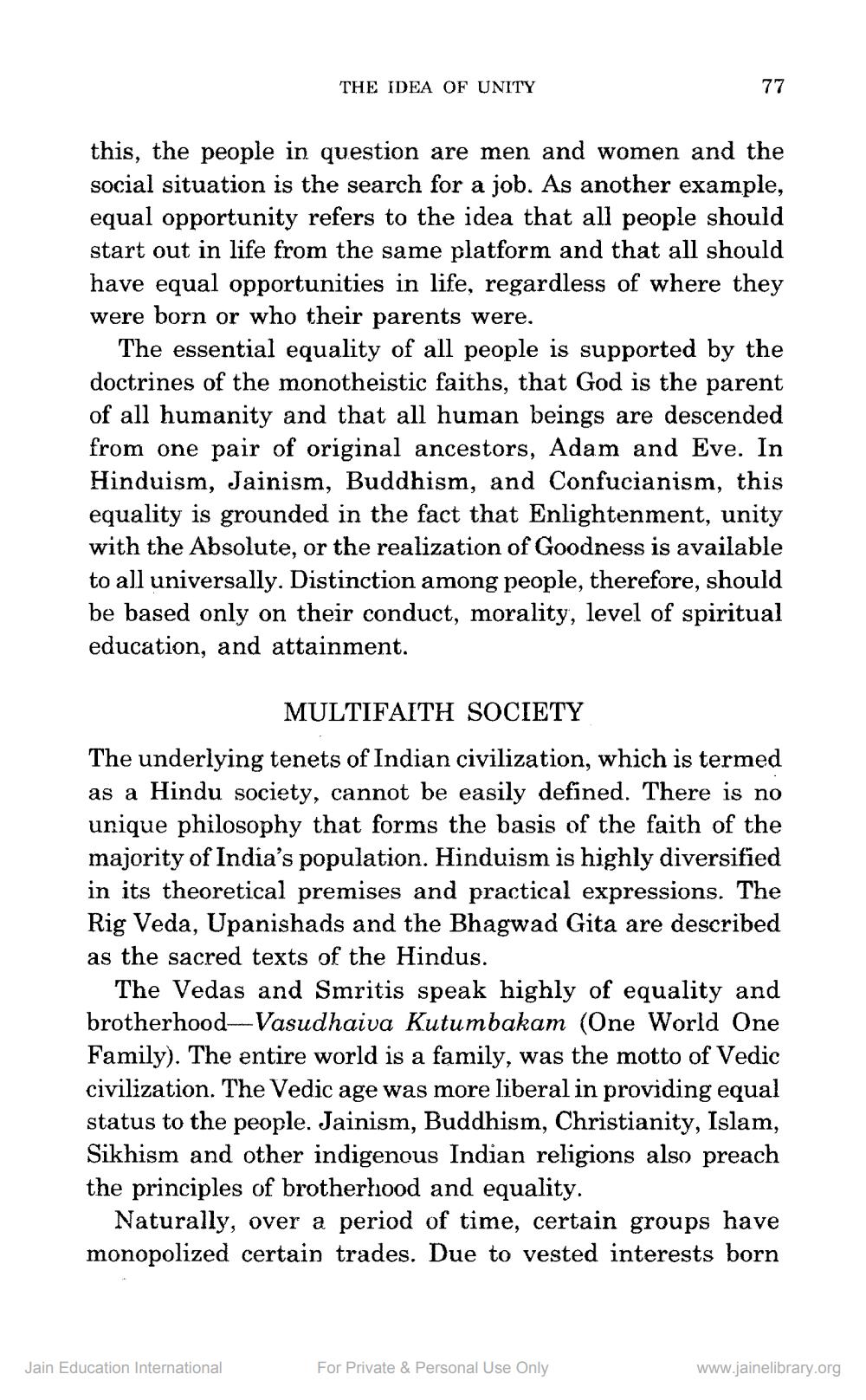________________
THE IDEA OF UNITY
77
this, the people in question are men and women and the social situation is the search for a job. As another example, equal opportunity refers to the idea that all people should start out in life from the same platform and that all should have equal opportunities in life, regardless of where they were born or who their parents were.
The essential equality of all people is supported by the doctrines of the monotheistic faiths, that God is the parent of all humanity and that all human beings are descended from one pair of original ancestors, Adam and Eve. In Hinduism, Jainism, Buddhism, and Confucianism, this equality is grounded in the fact that Enlightenment, unity with the Absolute, or the realization of Goodness is available to all universally. Distinction among people, therefore, should be based only on their conduct, morality, level of spiritual education, and attainment.
MULTIFAITH SOCIETY
The underlying tenets of Indian civilization, which is termed as a Hindu society, cannot be easily defined. There is no unique philosophy that forms the basis of the faith of the majority of India's population. Hinduism is highly diversified in its theoretical premises and practical expressions. The Rig Veda, Upanishads and the Bhagwad Gita are described as the sacred texts of the Hindus.
The Vedas and Smritis speak highly of equality and brotherhood—Vasudhaiva Kutumbakam (One World One Family). The entire world is a family, was the motto of Vedic civilization. The Vedic age was more liberal in providing equal status to the people. Jainism, Buddhism, Christianity, Islam, Sikhism and other indigenous Indian religions also preach the principles of brotherhood and equality.
Naturally, over a period of time, certain groups have monopolized certain trades. Due to vested interests born
Jain Education International
For Private & Personal Use Only
www.jainelibrary.org




